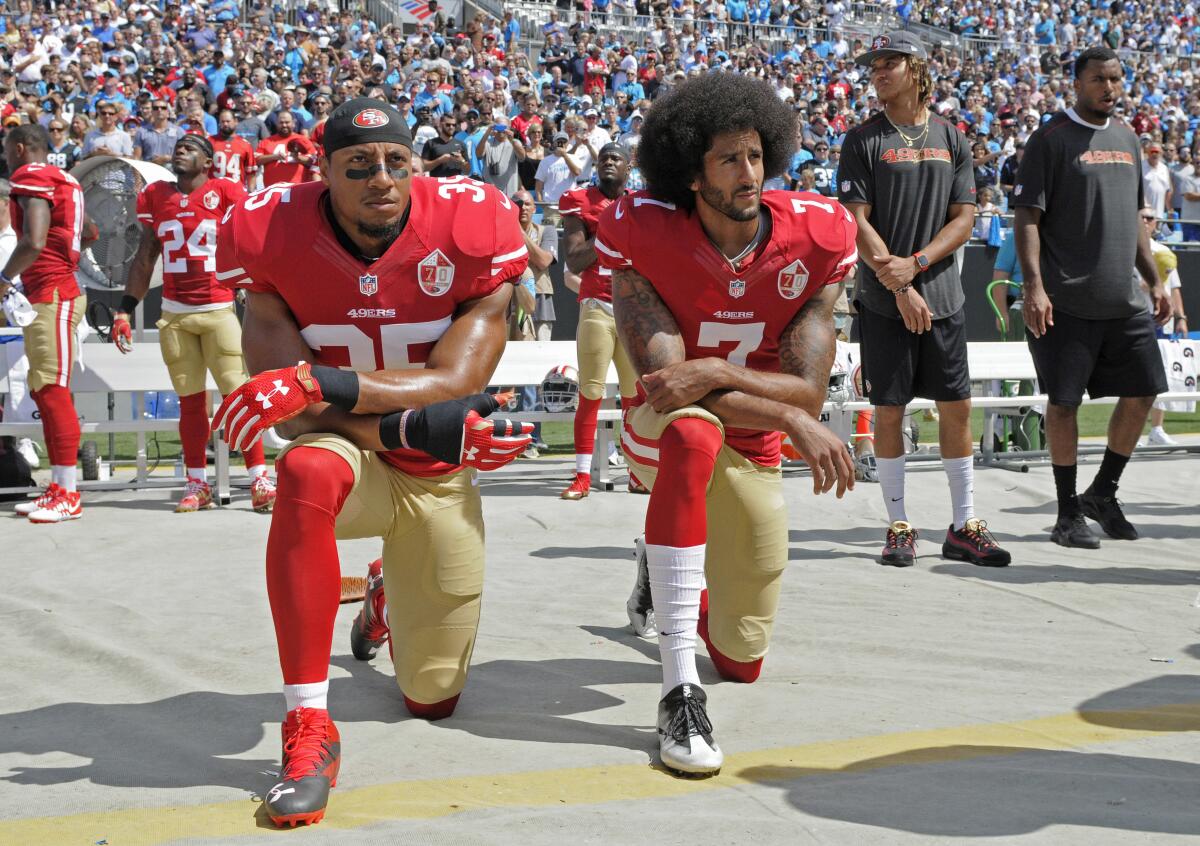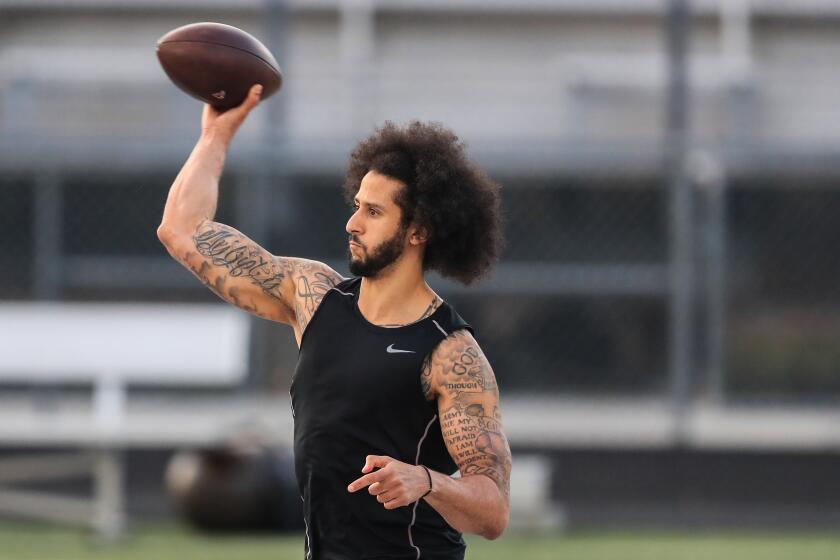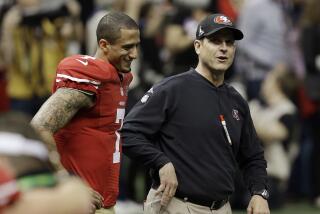‘Colin in Black & White’ shows that racism in sports runs deep
- Share via
NFL quarterback Colin Kaepernick hasn’t had a job in the league in five years, a situation his detractors have attributed to poor play and many others to a fateful decision: Coincidentally or not, Kaepernick’s final season in the NFL (to date) came after he began kneeling during the pregame playing of the national anthem, in order to protest police brutality and racial injustice.
That’s not to say the polarizing athlete hasn’t been working, though. This time, it’s on the story behind the story.
In the hybrid docudrama ‘Colin in Black and White,’ the former NFL star teams with Ava DuVernay to dramatize his teen years ‘without ambiguity.’
With Kaepernick as co-creator, executive producer and on-screen narrator, Netflix’s limited series “Colin in Black & White,” premiering Friday, looks back at the young life of the former 49er, who is today hailed as a civil rights hero by the left and lambasted as un-American by the Fox News crowd.
The six-episode series chronicles young Colin’s high school years in Turlock, Calif., during which his destiny was shaped by both his identity — a biracial adoptee of two white parents — and the creeping reality that no matter how talented he was or how hard he worked, he’d always be judged by a different set of rules than his white counterparts. His story is told through a combination of scripted dramedy, documentary-style explanatory sequences, a smattering of animation and a whole lot of first-person confessionals from the real-life Kaepernick, 33.

Though the subject matter is fraught, “Colin in Black & White,” partially directed by co-creator Ava DuVernay (“Selma,” “When They See Us”) and written by Michael Starrbury, tackles the depressing truth of discrimination inside and outside the world of sports. And it does so with a clever balance of YA humor, strategically deployed data — in a league that’s more than 70% Black, less than a third of the quarterbacks are — and an emotional authenticity that sheds light on who Kaepernick is today, and why he was willing to risk his career in the name of justice.
The dialogue and jokes between family members can be predictable in spots, but that homey dynamic grounds “Colin in Black & White” in a familiar setting — the family sitcom — while interspersing the plot with quick documentary lessons on the late-’90s crucifixion of Allen Iverson for being “too thug,” the influence of hip-hop fashion in sports and the economics of racism. (For example, we learn that, in 2015, 27.4% of Black applicants were denied mortgages, more than twice the number of whites who were turned away.) The intrusion of the real world is a powerful way of showing Kaepernick’s own growing awareness of what awaited him in adulthood, outside his family’s suburban door.
“Colin in Black and White” ends before Kaepernick’s NFL career begins. Here’s a timeline of key developments since the events of the series.
As portrayed here, Kaepernick‘s parents, played by Nick Offerman and Mary-Louise Parker, are two loving, caring folks who were wholly unprepared for the bias their son would face once he entered high school — or for the rudiments of raising a Black child, which is rendered most astutely through the lens of Colin’s hair.
The young Kaepernick (Jaden Michael) is clearly a gifted athlete. Everyone sees it, even the football coach, yet he’s passed over for the position of varsity quarterback in favor of a less proficient white player. Why? He’s not ready. Or he’s not ready to lead. Or he needs to be more of a team player. There’s never a good explanation.
When the teen complains to his parents around the dinner table, they do their best to offer advice, but all signs point to a hard road ahead.
“You’re just gonna have to prove him wrong,” his father says.
“Why am I always the one who has to prove them wrong?” asks the annoyed teen.
His mom answers with these poignant — and prescient — words: “Because you’re the one who is strong enough to do it.”
‘Colin in Black & White’
Where: Netflix
When: Any time, starting Friday
More to Read
The complete guide to home viewing
Get Screen Gab for everything about the TV shows and streaming movies everyone’s talking about.
You may occasionally receive promotional content from the Los Angeles Times.








